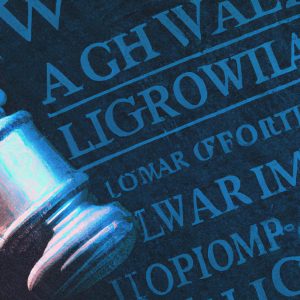Can You Handle Your Own Probate in New York?
Probate is the legal process by which a deceased person’s assets are distributed to their heirs or beneficiaries. In New York, probate involves various legal requirements, complexities, and potential challenges. While some individuals may consider handling probate on their own to save costs, it’s crucial to understand the complexities involved before deciding. This comprehensive guide will explore whether you can handle your own probate in New York under New York State Law.
Understanding Probate in New York
New York probate laws are designed to ensure the orderly distribution of a decedent’s assets and to protect the interests of heirs and beneficiaries. The probate process involves several key steps, including:
- Filing the will with the Surrogate’s Court
- Appointing an executor or administrator
- Identifying and valuing the deceased’s assets
- Notifying creditors and resolving outstanding debts
- Distributing assets to heirs or beneficiaries
Each of these steps comes with its own set of legal requirements and potential challenges. Let’s delve into some of the key considerations:
The Complexity of Probate
Probate involves various legal and financial intricacies. Understanding and navigating these complexities can be challenging without legal expertise. Some of the complexities you may encounter include:
- Interpreting and executing the terms of the will
- Identifying and locating all assets and property
- Handling creditor claims and disputes
- Complying with New York’s probate laws and regulations
- Preparing and filing required legal documents
- Resolving potential family disputes or contests
Without the guidance of an experienced probate attorney, you may find it challenging to address these complexities effectively, potentially leading to costly delays and disputes.
Legal Requirements and Deadlines
New York’s probate process has strict legal requirements and deadlines that must be adhered to. Missing a deadline or failing to meet these requirements can lead to complications and legal challenges. For example, you must file the will with the Surrogate’s Court within a specific timeframe, notify creditors, and handle claims promptly. An experienced probate attorney is well-versed in these requirements and can help ensure compliance.
Beneficiary and Creditor Claims
During probate, beneficiaries and creditors have the opportunity to file claims against the estate. Handling these claims and disputes, which may involve legal proceedings, can be overwhelming without legal representation. A probate attorney can protect the interests of the estate and its beneficiaries while resolving these issues efficiently.
Minimizing Costs and Delays
While handling probate on your own may seem cost-effective initially, mistakes or delays in the process can lead to increased expenses and prolonged proceedings. An experienced probate attorney can help streamline the process, reduce the risk of costly errors, and ultimately save you time and money.
Consulting a Probate Attorney
Considering the complexities and potential challenges of New York’s probate process, seeking legal counsel is highly recommended. A probate attorney can provide valuable guidance, ensure compliance with legal requirements, and help you navigate the process efficiently.
Morgan Legal Group specializes in probate and estate matters in New York. Our experienced attorneys can assist you in every aspect of the probate process, from filing the will to resolving complex issues. Contact us today for a consultation and ensure that your loved one’s estate is handled with the care and expertise it deserves.
In conclusion, while it’s technically possible to handle your own probate in New York, the complexities and legal requirements involved make it a challenging undertaking. Seeking the assistance of an experienced probate attorney is often the most prudent and efficient course of action to ensure a smooth and successful probate process.












